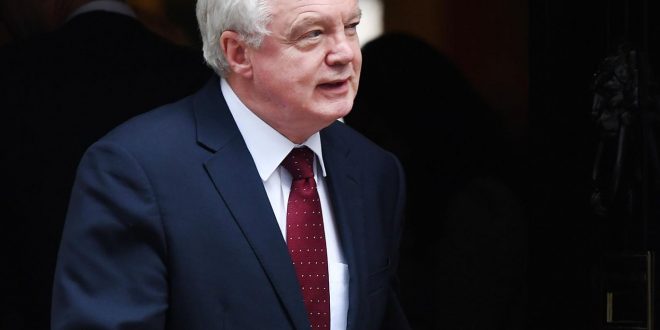The Brexit Secretary said the next round of negotiations with Brussels will take place next week
David Davis has conceded in front of peers that Britain’s Brexit withdrawal agreement will “probably favour“ the EU.
Speaking in the House of Lords European Union Select Committee, the Brexit Secretary said: “In the infamous – or famous – words of the European Union, nothing is agreed until everything is agreed.
“The withdrawal agreement on balance will probably favour the union in terms of the things like money and so on. Whereas the future relationship will favour both sides and will be important to both of us.”
The frank admission came after Mr Davis told peers that the next round of negotiations with Brussels will take place next week.
The Brexit Secretary said he was seeking an “intensification” in the talks but insisted Britain is on course to achieve a its desired outcome by the scheduled date of withdrawal from the EU in March 2019.
Speaking to the Lords committee, Mr Davis said he had invited EU chief negotiator Michel Barnier to London for talks on Wednesday this week, but this was not possible because the Brussels official had a prior engagement.
The EU team was also unable to accept a UK proposal for talks early next week, he said. Negotiators will therefore meet on Wednesday and Thursday of next week before Mr Davis travels to Brussels on the Friday.
The Brexit Secretary said: “We want to get on with the process – we are not holding up the process. I don’t want to score any points; it’s just a practical fact: I have invited Barnier to come to London tomorrow but he couldn’t do it – he had a prior engagement.
“We offered them the beginning of next week – they couldn’t do it. So it’s the latter part of next week when it will be when the negotiators engage. And I’ll be out there on Friday.”
Mr Davis also told the committee that he was “unsurprised” that leaders of the 27 remaining EU states had determined earlier this month that insufficient progress had been made in talks on the divorce deal for the second phase of negotiations, dealing with trade, to begin.
But he played down the significance of the decision, saying it provided time for the EU27 to prepare its position on the issues of trade and the transition to a new relationship in time for a European Council summit in December, when it is hoped they will give the green light to the second phase.
“We think that the outcome we got was one which keeps us on the timetable for an outcome in time for what we want,” Mr Davis told peers.
The Independent
 Lebanese Ministry of Information
Lebanese Ministry of Information



